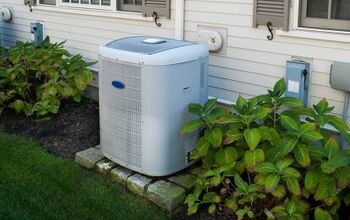Why Did My Mortgage Payment Go Up?

Buying a house is a big purchase, and as a savvy homeowner, you’re cautious about costs. However, after a year in your new home, you're blindsided by a $400 increase in your monthly mortgage payment and wonder what's changed.
An increase in insurance premiums and property taxes are the most common reasons for a higher mortgage payment. These increases usually lead to an escrow shortage, which also increases your house payment. Other reasons for an increase are a change in interest rate, extra fees, or in rare cases, your lender made a mistake.
Unfortunately, the house payment you start with isn't usually the one you keep. Mortgage payments change, usually every year, sometimes going down, but most of the time they increase. It's best to prepare for the inevitable by reviewing the reasons why you may pay more for your monthly mortgage.
7 Reasons Why Your Mortgage Payment Is Higher
Undoubtedly, it's frustrating to learn you owe more money for your house payment after you've been paying the same amount every month. For many people, housing costs are the largest line item in their budgets. Therefore, if that number rises, it deflates other categories, throwing off your entire spending and saving plan.
You may think if you have a fixed interest rate that this is a moot point, but not so fast. Despite your immovable rate, your mortgage payment is not set in stone and has plenty of potential to change. If you have an adjustable-rate mortgage, now there are even more possibilities for a ballooning house payment.
If you're a first-time homeowner, don't let a change in your mortgage catch you off guard. Here are common reasons for an increase in your monthly mortgage payment and a few suggestions of what you can do about it.
1. Rising Insurance Rates
When the lender tells you your monthly payment, you budget accordingly. You make sure you can handle your mortgage and everything else life throws your way. However, the lender doesn’t tell you how your insurance will inevitably go up every year.
If there’s a major weather event, for example, a tornado, that leads to heavy payouts from insurance companies, it can affect rates all over the country. However, even when things are relatively quiet, you can likely expect an increase in your premiums. After all, insurance companies are in the business of making money.
When you have a mortgage, typically your insurance is paid through something called escrow, which is rolled into your house payment. Therefore, when your insurance increases, so does your mortgage payment.
For example, if your insurance premium is $3,000 for the year, then you pay $250 per month into your escrow account. The escrow account builds throughout the year so that the mortgage company can pay the insurance bill the next time it’s due. However, when your new insurance bill comes up, you see rates are rising 30%.
Therefore, your new yearly premium is $3,900, and now, you need to fork over $325 per month toward escrow. (There’s a bit more to it, but we’ll look at that when we discuss escrow shortages in number three.)
2. Increase In Property Taxes
Similar to rising insurance rates, property tax increases also drive up your mortgage payment. Like your insurance premiums, when you pay a mortgage, your property taxes are usually paid via your escrow account. Therefore, each month you pay 1/12 of your total property taxes into the escrow account, so the mortgage company can pay your taxes when they’re due.
Consequently, if your taxes are $1,800 for the year, you pay $150 each month into your escrow fund. Adding this to the above example, let’s assume the principal and interest payment on your mortgage is $1,200. Add the $325 for insurance and $150 for property taxes, and your monthly payment is $1,675.
However, when you get your new property tax bill, you notice they recently did a new assessment and your taxes went up. In a way, that’s good news because it means the value of your property increased, but it also means you pay more. If your annual taxes are now $2,200, you need to pay approximately $183.33 each month. Now, your new payment is $1708.33.
3. There’s an Escrow Shortage
Now that you have increases in your insurance and property taxes, you’ll face an additional mortgage payment bump. When the amount in your escrow fund isn’t enough to cover the anticipated insurance premiums and property tax bill, you have a shortage.
Therefore, the mortgage company tacks on an extra amount each month to help make up the difference. This new number also includes a buffer that your lender also likes to keep in your escrow fund.
In the above insurance example, you paid $250 a month toward insurance into your escrow account. However, when the new insurance bill comes, you notice the increase to $3,900. Now you need to pay $325 a month moving forward to account for the new premium.
However, your lender had to foot the bill for the initial increase, tapping into that buffer. Your escrow fund now has a shortage of $900. Most companies give you the option to pay the shortage in full or break it up over the next 12 months.
If you don’t have the money on hand to pay it off in full, your payment now goes up another $75 a month (900/12). This example simplifies the process a bit, but it should give you a good idea of how insurance and property tax increases affect your monthly house payment.
4. You Don’t Have A Fixed Interest Rate
If you don’t have a fixed-rate loan, then the interest rate can change, affecting your overall payment. Interest can go down, but more often, it rises. A popular mortgage is an adjustable-rate mortgage (ARM), attractive because of its initial low interest rate.
For example, if you have a five-year ARM, your interest rate may start at 4.5%. However, after five years, the rate adjusts, and now you pay 8% in interest. This higher interest rate increases your payment by approximately $400 a month.
Buyers who expect to make more money in a few years find an ARM appealing. The initial payment is lower, and by the time it changes, the buyer is making more money and can afford the higher payment. In theory. These loans are risky because if something happens and buyers don’t get the income increase they were expecting, they can struggle to pay their mortgage.
5. Sneaky Service Fees
The first thing to do when you notice an increase in your mortgage payment is to scrutinize your statement. If you have a fixed rate, and there hasn’t been an increase in insurance or taxes, a higher payment can be extremely confusing. However, upon close inspection of your bill, you’ll likely notice new fees.
Call your lender and ask about the fees. Most likely, they’ll tell you they had sent some type of notice informing you of them. However, you probably ripped it up or ignored it because it was squeezed into a bunch of small print that comes with a bunch of other papers asking you to refinance, etc. You can ask your lender to remove the fees, but ultimately, they can say no.
6. You’ve Only Been Paying Interest
Another type of loan that can land you in hot water is an interest-only loan. Lenders push these onto people who need a smaller house payment in the beginning but will likely make more money later. The payment starts much smaller because you only pay interest at first.
However, once you start making principal payments in addition to the interest, your payment shoots up dramatically. If you aren’t prepared for the increase, which many people using this type of loan aren’t, it could put you in a sticky situation.
7. It Could Be A Mistake
If your mortgage payment goes up, but you can’t find any reason for it, call your lender. Verify that all of your escrow numbers and interest rates are the same. It’s possible the lender mixed up your loan number with someone else or made a similar mistake.
What Can You Do If Your Mortgage Payment Increases?
If the increase in your mortgage payment isn’t due to a mistake or new fees, you have a few options.
- If you have an adjustable-rate mortgage or interest-only loan, consider if refinancing into a fixed-rate makes sense for you.
- When your insurance rates go up, shop around for new insurance companies. Talk to your agent about raising your deductible to get a lower premium or ask about any possible discounts. For example, you can get drastic reductions in insurance premiums if you have a security system, wind mitigation, and other protective measures.
- Make sure you filed for your homestead exemption if one is offered to get a break on your property taxes.
Unfortunately, if your mortgage moves too far out of reach of your monthly budget, you may be faced with a tough decision. However, before you consider selling, talk to someone you trust about your options.
Related Guides:

Stacy Randall is a wife, mother, and freelance writer from NOLA that has always had a love for DIY projects, home organization, and making spaces beautiful. Together with her husband, she has been spending the last several years lovingly renovating her grandparent's former home, making it their own and learning a lot about life along the way.
More by Stacy Randall














![10 Best Electric Pressure Washers – [2022 Reviews & Guide]](https://cdn-fastly.upgradedhome.com/media/2023/07/31/9070600/10-best-electric-pressure-washers-2022-reviews-guide.jpg?size=350x220)












